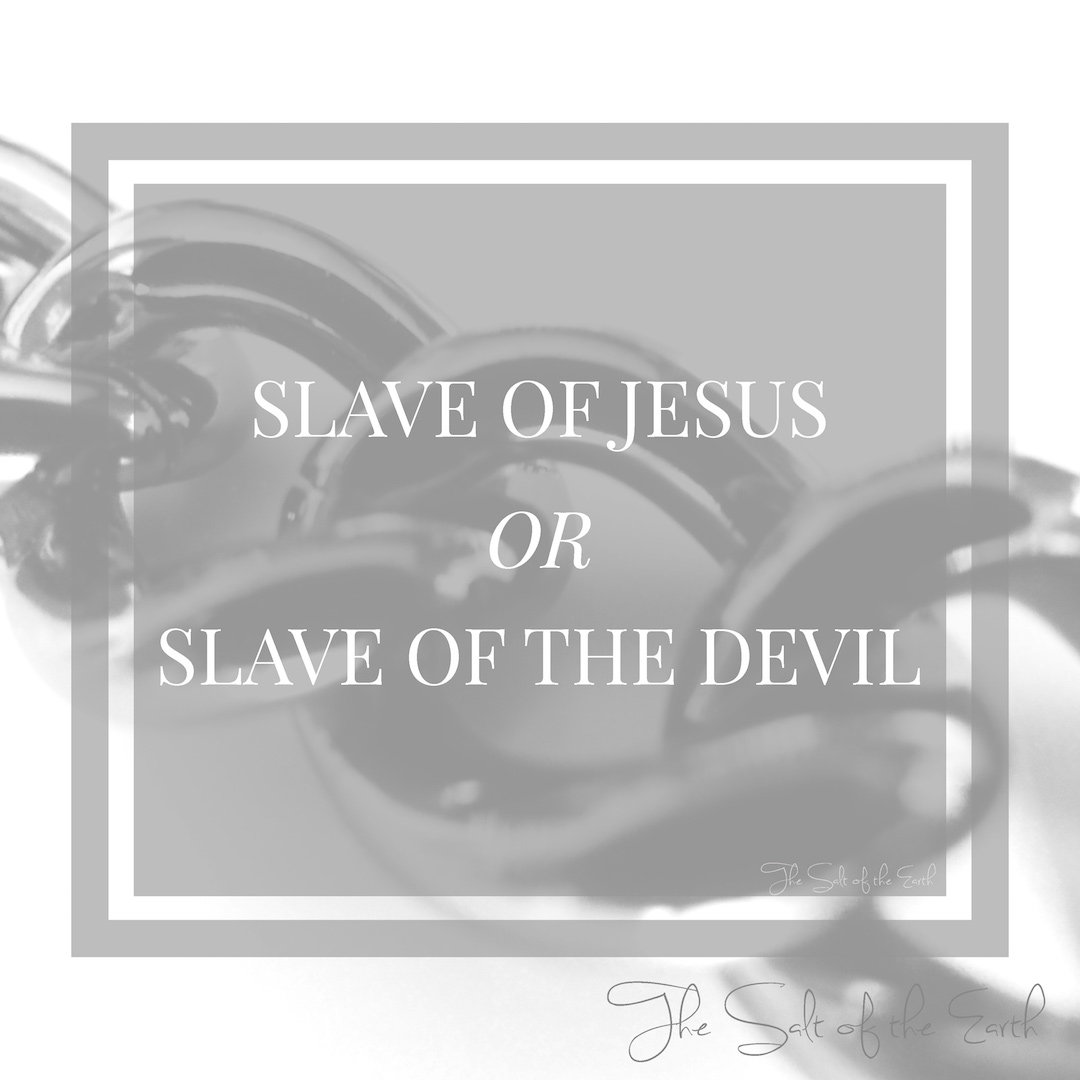The flesh and the Spirit diametrically oppose one another. The flesh lusts against the Spirit and the Spirit lusts against the flesh. The flesh and the Spirit don’t go together and will never go together. Kwa hiyo, a person sows in the flesh or a person sows in the Spirit and what a person reaps shall be the result in what a person has sown; the Spirit or the flesh. Because what you sow you will reap. What does the Bible say about sowing and reaping?
Kazi za mwili
Kwa maana wale walio baada ya mwili huyafikiria mambo ya mwili.; Lakini wale walio na Roho mambo ya Roho. Kwa maana kuwa na nia ya kimwili ni kifo; Lakini kuwa na nia ya kiroho ni maisha na amani. Kwa sababu akili ya kimwili ni uadui dhidi ya Mungu: Kwa kuwa haitii sheria ya Mungu, Kwa kweli, hakuna anayeweza kuwa. Basi wale walio katika mwili hawawezi kumpendeza Mungu (Warumi 8:5-8)
A carnal person is carnally minded and walks after the flesh. A carnal person is led by the flesh and does the works of the flesh. These works of the flesh originate from the sinful nature of the flesh and go against the will of God. Because the flesh won’t submit to God and shall never be subject to God and His commandments. Kwa hiyo, hizo, who are the uumbaji wa zamani and are in the flesh can’t please God.
Kazi za mwili, which originate from the evil nature are a.o:
- Uzinzi (asexual relationship between a married person and a person who is not his or her spouse)
- Uasherati (ukahaba, sexual uncleanness including adultery, talaka, incest, nonmarital sexual relations, ushoga)
- Uchafu (kimwili au kimaadili: -uchafu, najisi kiibada)
- Mapenzi ya kupita kiasi (mateso ipasavyo, (kupita kiasi) mapenzi, tamaa)
- Tamaa mbaya (evil/wicked desire or lust)
- Tamaa (ulaghai, unyang'anyi:-mazoea ya kutamani, uchoyo, kuwa na hamu ya kumiliki)
- Hasira (shauku ya vurugu, hasira, hasira, kisasi)
- Ghadhabu (ukali, hasira)
- Uovu (utukutu, uovu, uovu)
- Kukufuru (udhalilishaji (hasa dhidi ya Mungu), matusi, kuongea vibaya)
- Filthy communication (mazungumzo mabaya, Laana)
- Uongo (kusema uwongo au kujaribu kudanganya kwa uwongo, kwa uongo, uongo)
- Uvivu (kujazwa au kuonyesha hamu ya ngono)
- Ibada ya sanamu (kuabudu sanamu, kushikamana kupita kiasi au kujitolea kwa kitu)
- Uchawi (matumizi ya uchawi au uchawi, matumizi ya mihangaiko na kuomba mizimu, mawasiliano na shetani au na mtu anayemfahamu, ushawishi usiozuilika au kuvutia)
- Chuki (uadui au uadui wa ubaguzi, sababu ya upinzani, uadui)
- Tofauti (ya mshikamano usio na uhakika; ugomvi, ubishi, mjadala, ugomvi)
- Uigaji (wivu, akili ya bidii, hasira, wivu, bidii)
- Ugomvi (kitendo cha ugomvi, bidii au ugomvi kwa ubora)
- Machafuko (mgawanyiko, uchochezi wa upinzani au uasi dhidi ya mamlaka halali, waasi dhidi ya mamlaka ya nchi)
- Uzushi (madhehebu, belief or opinion contrary to orthodox religious doctrine (hasa Ukristo), imani au maoni ambayo hayakubaliani na imani rasmi au maoni ya dini fulani)
- Wivu (wivu, hisia ya kutaka kuwa na kile mtu mwingine anacho, Hisia ya kutoridhika au hamu ya kinyongo inayochochewa na mali ya mtu mwingine)
- Mauaji (kuchinja, kuua, kuharibu au kuharibu, kumshinda mpinzani vibaya sana)
- Ulevi(ulevi, hali ya kulewa)
- Tafrija (ghasia, a carousel, enjoying oneself in a lively and noisy way, hasa kwa kunywa na kucheza)
Wale, who do the works of the flesh, shall not inherit the Kingdom of God
Sasa matendo ya mwili ni dhahiri, ambazo ni hizi; uzinzi, uasherati, uchafu, ulegevu, ibada ya sanamu, uchawi, chuki, tofauti, uigaji, hasira, ugomvi, uchochezi, uzushi, husuda, mauaji, ulevi, shangwe, na kama vile: ambayo nawaambia kabla, kama nilivyowaambia zamani, ili watendao mambo kama hayo hawataurithi Ufalme wa Mungu (Wagalatia 5:19-21)
Hamjui ya kuwa wasio haki hawataurithi ufalme wa Mungu.? Usidanganyike: wala waasherati, Wala waabudu sanamu, wala wazinzi, wala si ya kubeza, Wala hawajidhulumu nafsi zao pamoja na watu., Wala wezi, wala tamaa ya, wala si walevi, wala wapingaji, wala wanyang'anyi, Atarithi ufalme wa Mungu (1 Wakorintho 6:9-10).
Neno linasema, kwamba wale, who do the works of the flesh, shall not inherit the Kingdom of God.
Kwa hiyo, if in a church these things happen among Christians, including the leaders of the church, it proves that the church (Mkutano wa Waumini) is carnal and belongs to the world (Ufalme wa Giza) and is not spiritual and doesn’t belong to God and His Kingdom.
The building and interior of the church may look beautiful and the neon lightning with dynamic light effects and the music may influence the visitors in such a manner that it creates an experience, and elevates the mood and evokes pleasant feelings and emotions, and causes goosebumps, but all these things don’t prove that the church is spiritual and that God’s Spirit is present.
Kinyume chake, it only proves that the church is carnal and relies upon audiovisual technology, and is led by her senses, hisia, na hisia. But God is Spirit and not a feeling and an experience.
If a person goes to a concert or a club, the mood of the person shall also be elevated by the neon lighting with dynamic light effects and music. The person shall also experience goosebumps, hisia za kupendeza, na hisia. But God and His Spirit are not present.
The signs and wonders don’t prove if someone is spiritual
(Supernatural) signs and wonders can also take place in a church, but the signs and wonders don’t prove that a church is spiritual. Especially if people persevere in sin and sin is tolerated in the church.
The signs and wonders can originate from the Spirit but signs and wonders can also originate from the soul, which is controlled by the kingdom of darkness.
Kuna watu wengi, who don’t know God and are not born again and therefore are unspiritual, but do (isiyo ya kawaida) signs and wonders from the flesh, by means of natural technics, mbinu, matambiko, and natural elements and resources and influence of evil spirits. Look at alternative healers, Eastern philosophers, occultists, and what about the sorcerers in Egypt, who could do the same signs as God, to a certain extent (Soma pia: ‘Je, ni lazima uzaliwe mara ya pili ili utembee katika nguvu zisizo za kawaida?’ And ‘A technical faith')
What is the fruit of the Spirit?
Kwa hiyo sasa hakuna hukumu kwa wale walio katika Kristo Yesu., ambao hawatembei baada ya nyama, Lakini baada ya Roho. Kwa maana sheria ya Roho wa uzima katika Kristo Yesu imeniweka huru kutoka kwa sheria ya dhambi na mauti.. For what the law could not do, in that it was weak through the flesh, God sending His own Son in the likeness of sinful flesh, and for sin, condemned sin in the flesh: That the righteousness of the law might be fulfilled in us, ambao hawatembei baada ya nyama, Lakini baada ya Roho (Warumi 8:1-4)
But ye are not in the flesh, but in the Spirit, if so be that the Spirit of God dwell in you. Now if any man have not the Spirit of Christ, he is none of His. And if Christ be in you, the body is dead because of sin; but the Spirit is life because of righteousness. But if the Spirit of Him that raised up Jesus from the dead dwell in you, He that raised up Christ from the dead shall also quicken your mortal bodies by His Spirit that dwelleth in you (Warumi 8:9-11)
Wale, who have become a new creation in Christ and have the Spirit of God shall no longer be servants of the sinful nature of the flesh and serve the flesh, but they are servants of the Spirit. They have received the Spirit of God and walk after the Spirit and shall bear the fruit of Spirit, ambayo ni:
- Upendo (Godly love and not worldly love)
- Joy
- Amani
- Longsuffering
- Gentleness
- Goodness
- Imani (faithful)
- Upole
- Temperance (Kiasi)
Ofcourse there are people, who are not born again and seem loving, gentle, uvumilivu wa muda mrefu, meek, faithful, joyful, and peaceful. But the difference between those, who are carnal and those who are spiritual is, that the people, who are carnal are led by the flesh and not by the Spirit.
Hii inamaanisha, that as long as the circumstances and situations go according to their will and as long as the people treat them according to their will, then everything is fine. But as soon as something changes and the circumstances and situations don’t go according to their will or as planned and the people don’t do what they want or don’t do what they expected them to do or if they experience resistance and persecution, then their behavior changes and a whole bunch of other characteristics appear.
But the fruit of the Spirit, which originate from the Spirit and the Godly nature of the new man is permanent and is not dependent upon natural circumstances, hali, surroundings, and people. The new man bears the fruit of the Spirit at all times (Soma pia: ‘Tunda la Roho‘)
What you sow you will reap
Kwa hiyo, Ndugu, we are debtors, not to the flesh, to live after the flesh. Kwa maana ikiwa mnaishi kwa kufuata mwili, Mtakufa: lakini ikiwa ninyi kwa njia ya Roho mnayatia moyo matendo ya mwili, Mtaishi (Warumi 8:12-13)
Wale, who by faith and regeneration belong to Christ and have become a uumbaji mpya are not led by the evil sinful nature, ambayo ipo katika mwili, and don’t do those things, which go against the will of God.
They don’t listen to the flesh and the lusts and desires of the flesh and don’t do the works of the flesh, since they have crucified their flesh and its lusts and desires in Christ (Soma pia: ‘Following Jesus will cost you everything‘ and ‘Utaratibu wa uchungu unaojulikana kama kufa‘ .
If you sow in the flesh you shall reap corruption
As long as a person remains the old man and walks after the flesh, the person shall keep doing the works of the flesh and remain a slave of sin. The old man shall sow to his flesh and shall of the flesh reap corruption.
Mzee, who walks after the flesh, shall not please God with his works, but shall grieve God.
If you sow in the Spirit you shall reap life everlasting
For as many as are led by the Spirit of God, they are the sons of God. For ye have not received the spirit of bondage again to fear; but ye have received the Spirit of adoption, whereby we cry, Abba, Father. The Spirit itself beareth witness with our spirit, that we are the children of God: And if children, then heirs; heirs of God, and joint-heirs with Christ; if so be that we suffer with Him, that we may be also glorified together (Warumi 8:14-17)
Lakini wale, Ambao love God and have become a new creation shall keep His commandments and walk in His will after the Spirit in obedience to the Word and shall sow to the Spirit. They shall bear the fruit of the Spirit and shall reap life everlasting.
‘Kuweni chumvi ya dunia’
Chanzo: Strong’s concordance, Kamusi ya Oxford, Merriam-Webster dictionary



